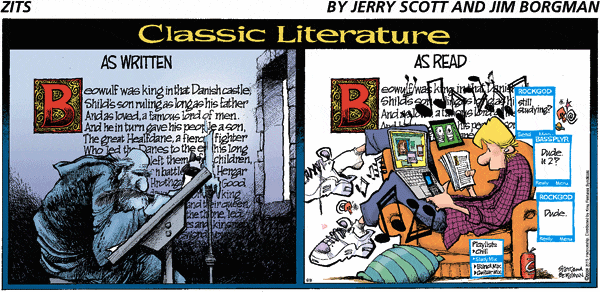Learning about Learning (in a Writing Class)
It can be very useful for UWS instructors and students alike to spend some time considering how they learn and what techniques may be most useful for knowledge and skill acquisition. Below are some topics and useful resources for discussions on metacognition.
Potential Topics/Learning Goals
- Distinguishing and switching between focused and diffuse mode of thinking
- Learning about the connection between body and brain, and about the benefits of physical exercise for creativity
- Discussing strategies for managing time and effort, preventing procrastination, maintaining motivation, and reducing anxiety
- Exploring how beliefs about ourselves shape our personal and professional lives; considering the effects of a fixed mindset vs. a growth mindset
- Increasing students' awareness of the purpose and transferability of their learning in UWS
Video Clips
- Animation of the brain – an MRI scan visualizing the wiring of the brain
- Joshua Foer: "Feats of Memory Anyone Can Do" – a TED talk demonstrating the memory palace technique
- "Sherlock Holmes Deduces in the Pub" - a scene from Sherlock (Season 2, Episode 2: "The Hounds of Baskerville") illustrating the power of close observation/focused attention
- Gorilla-in-the-background video - a staged scene illustrating selective attention ("inattentional blindness")
Useful Handouts
- Study Habits Survey – for self-evaluation
- "10 Rules of Good Studying" / "10 Rules of Bad Studying" (excerpted from Barbara Oakley's book A Mind for Numbers, pages 257-260)
Texts for Class Discussion
- Beris, Rebecca. “Science Says Silence Is Much More Important to Our Brains Than We Think.” Lifehack.
- Fleming, Amy. “‘It’s a superpower’: how walking makes us happier, healthier, and brainier.” The Guardian, 28 July 2019.
- Oates, Joyce Carol. “Running and Writing.” The Faith of a Writer: Life, Craft, Art. HarperCollins, 2003, pp. 29-36.
- Ripatrazone, Nick. “Why Writers Run.” The Atlantic, 11 November 2015.
- Wheeling, Keith. “This is Your Brain on Exercise.” Outside Online, 31 May 2017.
Sources and Recommended Reading
- Atherton, Matthew C. "Academic Preparedness of First-Generation College Students: Different Perspectives." Journal of College Student Development, vol. 55, no. 8, 2014, pp. 824-829.
- Dweck, Carol. Mindset: The New Psychology of Success. Random House, 2006.
- Cushman, K. “Facing the culture: First-generation college students talk about identity, class, and what helps them succeed.” Educational Leadership, 2007, pp. 44‑
- Duhigg, Charles. The Power of Habit. Random House, 2012.
- Epstein, David. Range: Why Generalists Triumph in a Specialized World. Riverhead, 2019.
- “Study Skills.” English for Academic Purposes Foundation, https://www.eapfoundation.com/studyskills.
- Ishitani, Terry T. “Studying Attrition and Degree Completion Behavior among First-Generation College Students in the United States.” The Journal of Higher Education, vol. 77, no. 5, 2006, pp. 861-885.
- Kahnemann, Daniel. Thinking, Fast and Slow. Farrar, Straus and Giroux, 2011.
- Oakley, Barbara. A Mind for Numbers: How to Excel at Math and Science (Even if You Flunked Algebra). Random House, 2014.
- Schooler, Jonathan, et al. “Chapter One - The Middle Way: Finding the Balance between Mindfulness and Mind-Wandering.” Psychology of Learning and Motivation, vol. 60, 2014, pp. 1-33.
- Tough, Paul. “Who Gets to Graduate?” New York Times Magazine, May 15, 2014.
- Winkelmes, Mary-Ann, principal investigator and founder. TILT Higher Ed: Transparency in Learning and Teaching. https://tilthighered.com.
 Copyright Jerry Scott and Jim Borgman, 2009.
Copyright Jerry Scott and Jim Borgman, 2009.
Contributed by Katrin Fischer, Brandeis University Writing Program, 2020.